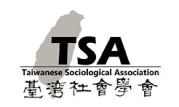3.中國社會福利體制階層化的政治經濟學根源(Political Economy of the Chinese Stratified Welfare Regime)
2018-08-20
| 主題 Subject | 臺灣社會學刊 |
| 標題 Title English abstract |
中國社會福利體制階層化的政治經濟學根源(Political Economy of the Chinese Stratified Welfare Regime) |
| 描述 Description | 本文論證中國福利制度階層化乃是根植於它的國家發展策略,因此 我們需要對福利制度進行政治經濟學的分析。為了保持Esping-Andersen 對福利資本主義分析架構的優點,而同時也能將該架構運用到中國案 例,我們對他「三個世界」的分類進行理論上的修改,並提出制度動力 的歷史分析才是分判體制的主要依據。在這樣的理論修正下,本文論證 中國戰後福利體制一直都是國家領導下的階層化保守主義。這個保守福 利體制是在追求超趕的重工業化發展策略下被建立起來的。文革之後勞 保條例的廢除使得全國層次的社會保障統籌功能盡失,身分與職業區隔 的階層化體制被進一步零細化切割到個人所在單位。改革開放雖然逆轉 計畫經濟的邏輯,但是區域與城鄉之間工資差異的擴大,使得「統帳結 合」社會保險呈現階層化,政策試點的實施方式也使得社會保險實施範 圍只被限定在地級市或縣以下的地方行政區。我們以新農合的發展作為 案例,檢驗中國階層化福利體制是否可能改變軌道。新農合一方面緩解 了因為商品化而來的農村基礎醫療問題,但它的制度設計在實質上也是 將農民限制在戶籍地接受較差的醫療服務。醫療保險的城鄉統籌要能實 質成功,要不就是讓農民所得趕上城鎮職工的水準,要不就需要政府大 量的財政投入來補足農民的弱勢,二者都不是目前我們所能觀察得到的 現象,也因此中國福利體制在可預見的未來,還是會保持在國家領導下 的階層化保守主義。 關鍵詞:福利體制、統帳結合、新農合、城鄉統籌 |
| 形式 Form | 文字、單期 |
| 來源 Origin | 臺灣社會學刊 |
| 關聯 Relation | 臺灣社會學刊第50期 |
| 英文摘要 abstract | Political Economy of the Chinese Stratified Welfare Regime Hung-jeng TSAI Department of Sociology, National Sun Yat-sen University Abstract The author argues that Chinese welfare institutional stratification has roots in developmental strategies adopted during different periods, resulting in the need for an overall political-economic analysis of the Chinese welfare system for full understanding. To maintain the advantages of Esping- Andersen’s analytical framework when applied to Chinese development, I conduct a theoretical revision of his “three worlds of welfare capitalism,” and propose a historical analysis of institutional dynamics as a crucial tool for regime classification. According to my theoretical revision, I argue that the postwar Chinese welfare regime reflects the ongoing course of state-led conservatism, with welfare institutions divided into three mutually exclusive blocks during the height of the country’s planned economy period. After the Cultural Revolution, these blocks were fragmented as individual work units and eventually lost their social protection function. Increasing wage inequality between regions and rural-urban areas has resulted in a social insurance hierarchy in which benefits are pegged to contributions. Fiscal decentralization due to economic reforms, which confines new social insurance plans to prefecture or county levels, continues to limit the effects of risk pooling. In this article I explore the development of the country’s New Cooperative Medical Scheme to see the possible change of Chinese conservative regime. While it addresses basic medical problems in rural areas, it also restricts rural workers to specific living areas in which they receive poor quality medical treatment. To successfully deal with this problem, any coordinated urban-rural development scheme requires one of two conditions: greater income for rural workers, or a major investment by the national government. Neither condition has been observed so far, therefore it appears that the Chinese welfare regime will continue according to state-led and stratified conservatism. Keywords: welfare regime, combined social pooling and personal accounts, new cooperative medical scheme, urban-rural coordinated development |
| 創作者 Creator | 蔡宏政(Hung-jeng TSAI) |
| 出版者 Publisher | 臺灣社會學會 |
| 貢獻者 Contributor | |
| 權利 Right | 已授權 |
| 日期 Date | 出版日期:2012年9月 |
| 格式 Format | |
| 識別碼 Code | 檔名:tsa-tj-050_20120900_0003-0000-p.pdf |
| 語言 Language | 中文 |
| 數位檔連結 Download | ( tsa-tj-050_20120900_0003-0000-p.pdf.pdf ) 華藝線上圖書館連結▼ |



